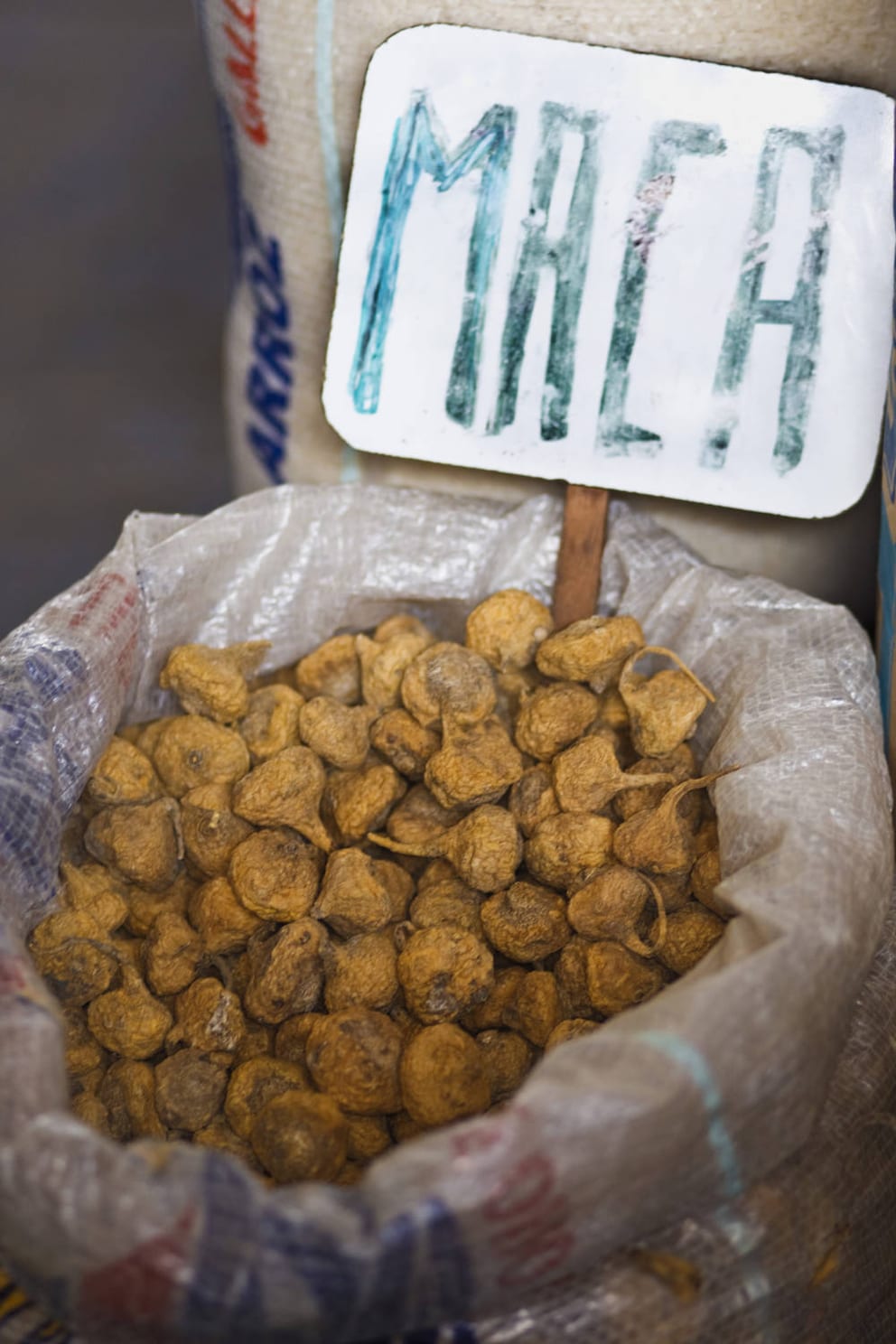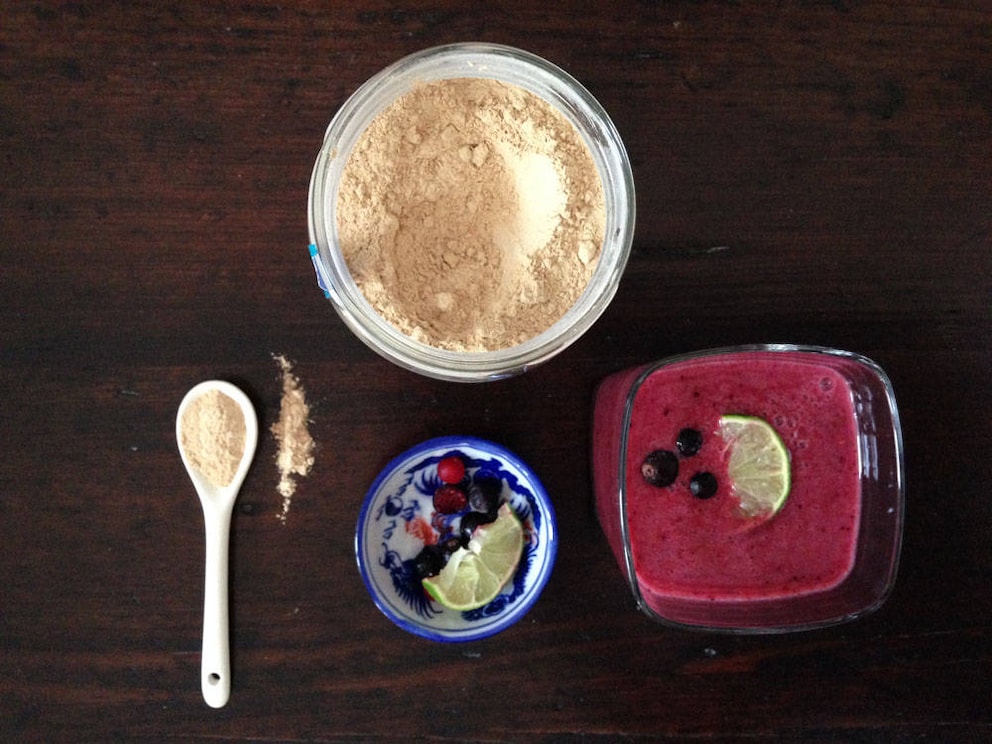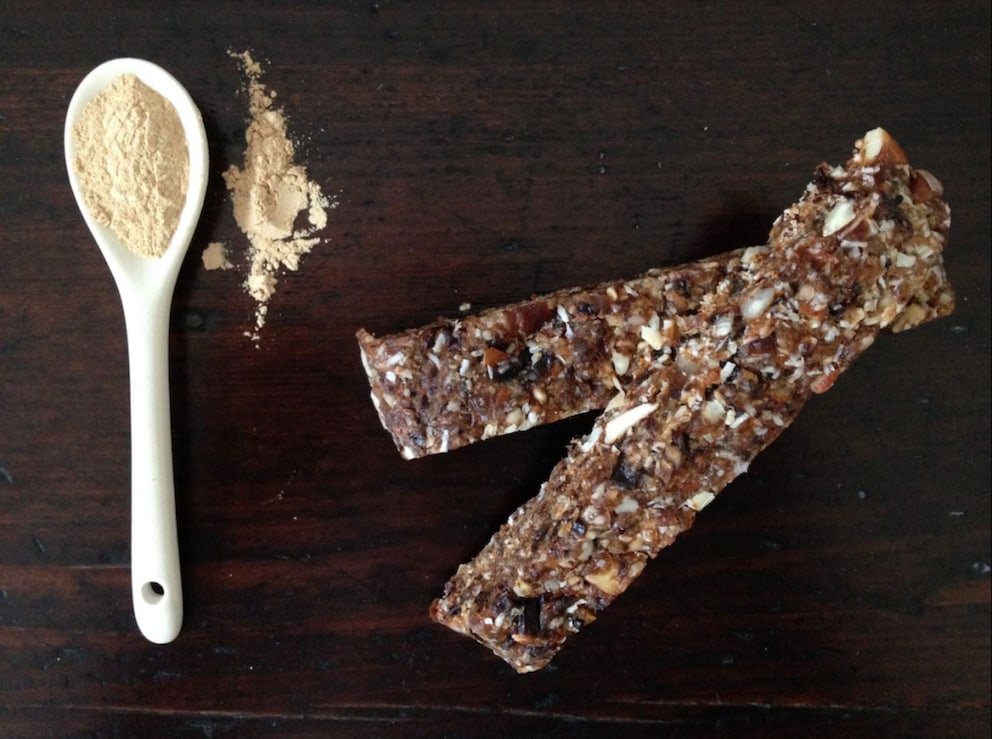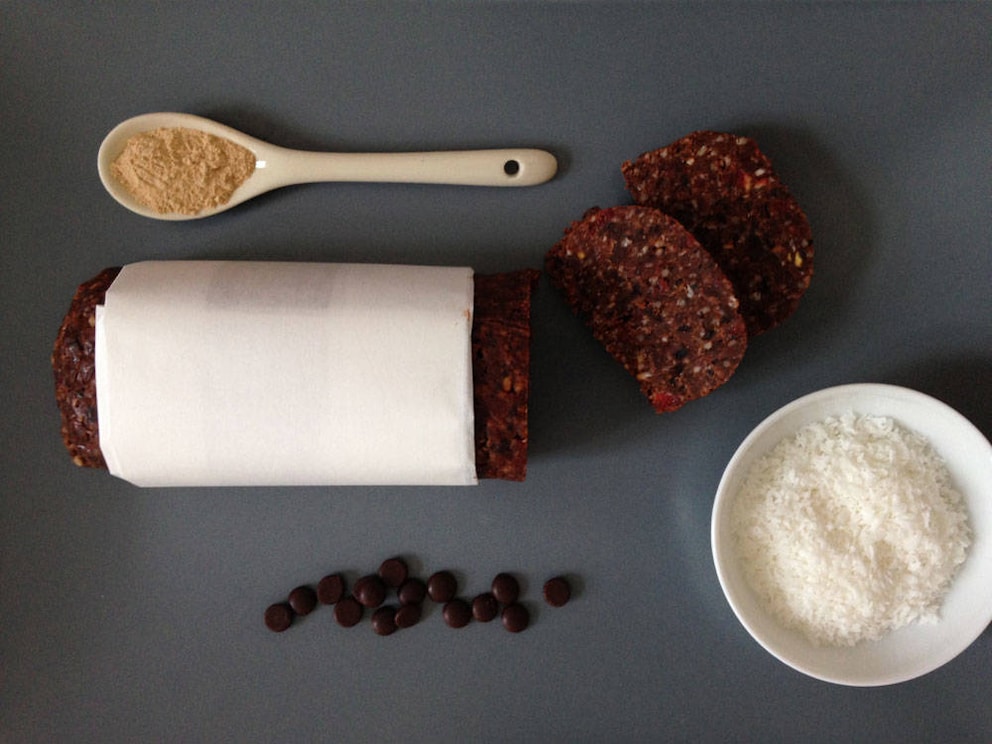October 22, 2024, 6:46 am | Read time: 6 minutes
Small tuber, big effect: At an altitude of around 4,000 meters in the Andes of Peru, a plant grows underground that is said to have an aphrodisiac effect on men and women: the maca plant. Read on to find out how this superfood can bring calm minds back to life (in bed) and how you can plant the pleasure tuber on your balcony. Plus: three delicious maca recipes.
What’s the connection between an aphrodisiac and a plant shop? You might think there’s not much of a connection at first glance. But that’s not the case. When looking for colorful flowers for the balcony, some customers may have noticed pots of a green herb alongside lavender, daisies, and the like: Maca, advertised as a “stimulant”. Surprise – it’s right there in the midst of the herb, fruit, and vegetable section, nestled between tomatoes, strawberries, and kumquat trees.
What looks inconspicuous at first glance promises great things. According to the information sign, the Peruvian maca plant “has been used as a natural stimulant for men and women for at least 2000 years”.
Overview
What makes maca so healthy
The tuber in particular contains lots of vitalizing substances, including calcium, zinc, iron, and vitamins, which make us fitter, more alert, and more efficient. A high level of carbohydrates provides energy, and the proteins are good for building muscle. Hormone-like substances are said to promote blood circulation in the pelvic region. This super tuber from the Andes is reputed to do more than just boost libido and fertility; it’s also said to enhance our overall sense of well-being. It’s considered a true cure-all.
A number of studies have been carried out on the pleasure-enhancing properties of maca – including those by Peruvian scientist Gustavo F. Gonzales – which have shown a positive effect on sexual desire in men. Maca is also said to have a positive effect on sperm count.
Maca has been used as a medicinal plant for thousands of years
It’s no wonder that the Peruvians and their ancestors have sworn by this medicinal plant for thousands of years. And even in Germany, in the US, and especially in China, people have caught wind of its effects. Because wild ginseng, which is said to have similar healing powers in traditional medicine, is becoming increasingly rare there, the Chinese are switching to the Peruvian miracle plant. In 2014, they made headlines because they bought so much maca that tons of the raw tuber were illegally smuggled out of Peru, and prices doubled as a result.

Also interesting: Turmeric latte or golden milk – probably the healthiest way to drink milk
Planting maca on the balcony
For those looking to sidestep the price war and the environmental impact of long delivery routes, cultivating maca on your balcony is the ideal solution (or, alternatively, a trip to Peru). Another advantage of balcony cultivation is that you can enjoy the tubers and leaves because, in Germany, maca is almost exclusively sold in powder or capsule form. Fans of raw food cuisine know the powder in its pure form or as an energy supplier in bars and smoothies. The leaves can be nibbled raw or chopped up and mixed into salads, while the bulb can be baked in the oven similarly to other turnips or potatoes.
There is one catch: In the mountains of Peru, the maca plant is exposed to extreme climatic conditions: alternating storms, sun, and cold. Its remarkable resilience is believed to be the secret behind its so-called superpowers. Although it can withstand the German weather, the effect of the balcony maca may be limited.
For those without a balcony or garden, maca powder is a great alternative, easily mixed by the spoonful into smoothies, baked goods, muesli, and energy bars.

Home-made guinea fowl Tunisian-style
Three recipes with maca powder
Maca super shake (vegan)

Ingredients for 1 glass:
- 1/2 banana
- A handful of fresh berries (e.g., raspberries, blackberries, and blueberries)
- ginger as required
- a few squeezes of lime juice
- about 200 ml of rice milk (alternatively, almond milk, soy milk, etc.)
- 1/4 tsp. maca powder
Preparation:
1. Place the banana and a splash of rice milk into a blender and purée on a low setting until smooth.
2. Add the finely chopped ginger, washed berries, lime juice, and maca powder. Top up with rice milk and blend again. Done.
Maca muscle muesli bars (vegan, gluten-free)

You can find the basic recipe for the paleo power bars here. I have modified it a little.
Ingredients:
- 150 g almonds
- 150 g dried prunes
- 150 g dried dates
- 1 tbsp. coconut oil
- 1 tbsp. grated coconut
- 1 tsp. maca powder
Preparation:
1. Roast the almonds in the oven for 10 to 15 minutes, then leave to cool.
2. Chop the almonds, prunes, and dates in a food processor until you have a coarse mixture.
3. Add the liquid coconut oil, the grated coconut, and the maca powder and mix again briefly.
4. Then spread the mixture onto cling film and shape into a square with your fingers.
5. Place the “packet” in the fridge until ready to eat. Then cut into bar strips.
Unbaked maca chocolate cake

Ingredients:
- 50 g almonds
- 50 g prunes
- 50 g dates
- 20 g dried watermelon (hard to find in Germany, I got it from Bangkok. Alternatively, dried apricots or cranberries will also work).
- 2 tbsp. chocolate drops
- 1 tbsp. honey (alternatively, a little agave syrup)
- 2 tbsp. coconut oil
- 1 tbsp. grated coconut
- 1-2 tsp. (raw) cocoa powder
- 1 tsp. maca powder
Preparation:
1. Put the almonds, prunes, dates, and watermelon in a food processor and chop for about two minutes.
2. Add the chocolate drops and blend again.
3. Fold in the honey, liquid coconut oil, grated coconut, cocoa powder, and maca powder and chop everything until you have a fine, even mixture (unlike the muesli bars, you should not be able to see any whole pieces of nuts here).
4. Spread the mixture onto cling film and shape it into a small loaf.
5. Place the cake in the fridge until ready to eat. Then cut into pieces.

